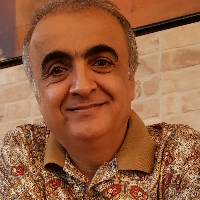Impaired nonverbal working memory in high-functioning autism spectrum disorder
Author(s):
Article Type:
Research/Original Article (دارای رتبه معتبر)
Abstract:
Background
Past studies have documented working memory impairment in participants with high-functioning Autism Spectrum Disorders (IQ>70), but inconsistent findings have been reported. One possibility is the existence of verbal responses in the evaluation of working memory performance. The aim of the current study is to examine the working memory performance and its correlation with a prominent deficit in participants with high-functioning Autism Spectrum Disorders by non-verbal working memory tasks compared with typically developing samples.
Methods
The current study is a cross-sectional, comparative study. The working memory performance of the 30 participants with high-functioning Autism Spectrum Disorders (7-16 years) and 30 typically developing was compared by working memory subtests of the Leiter International Performance Scale-Revised in Tehran, Iran. Two groups were matched for age and gender. ANOVA, ANCOVA, repeated measures ANOVA and Pearson’s correlation coefficient were used to analyze the data statistically. The significance value was set at p<0.05.
Results
The results showed that if the effect of FSIQ (full-scale intelligence quotient) were controlled individuals with high-functioning Autism Spectrum Disorders exhibited significant impairment in the Reverse Memory subtest (p=0.001). Also, unpredictably Forward Memory (r=0.38, p=0.03) and Reverse Memory tasks (r=0.38, p=0.03) displayed a significant positive correlation with the Social interaction subscale of the Gilliam Autism Rating Scale (Second Edition).
Conclusion
It seems that nonverbal working memory is impaired in persons with high-functioning Autism Spectrum Disorders. Results of the current study revealed that factors like complexity and cognitive load of tasks may influence working memory performance in individuals with high-functioning Autism Spectrum Disorders.Keywords:
Language:
English
Published:
Medical Journal Of the Islamic Republic of Iran, Volume:32 Issue: 1, Winter 2018
Pages:
623 to 629
https://www.magiran.com/p1935514
سامانه نویسندگان
مقالات دیگری از این نویسنده (گان)
-
Evaluation of COVID-19 Outcomes on the Musculoskeletal System Using the Extended Nordic Questionnaire
Navid Dehghani, Behnoosh Vasaghi-Gharamaleki*, Seyed Hassan Saneii, Mehdi Dadgoo
Function and Disability Journal, Winter 2022 -
Investigating the Relationship Between the Thesis Score and Grade Point Average of Master of Science Graduates of Rehabilitation Faculty From 2008 to 2019
Seyed Hassan Saneii, Laleh Lajevardi, Mahtab Roohi Azizi, Behnoosh Vasaghi-Gharamaleki*
Function and Disability Journal, Winter 2022 -
Autism and the Three Main Theories of Cognition
Azadeh Doustelahi, Seyed Ali Samadi *, Mostafa Taqavi
Journal of Philosophical Investigations, -
Paul Togard's theory of the tree of conceptual change applied to autism spectrum disorders
Azadeh Doustelahi, Mostafa Taqavi *, Seyed Ali Samadi
Philosophy of Science,




